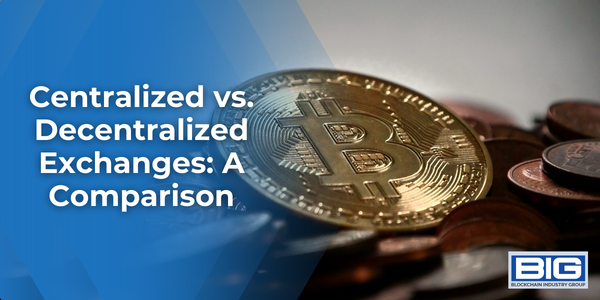
As the world of cryptocurrency continues to grow and evolve, one key area of debate is the best way to buy and sell digital assets. On one hand, centralized exchanges offer a familiar, easy-to-use platform for conducting trades. On the other hand, decentralized exchanges (DEXs) offer a number of potential benefits, including increased security and greater control over assets.
One key advantage of centralized exchanges is their simplicity. These platforms, which include heavyweights like Coinbase and Binance, offer a user-friendly interface that makes it easy for even novice traders to buy and sell a variety of cryptocurrencies. Centralized exchanges also tend to have high liquidity, meaning that it is usually easy to find a buyer or seller for a given asset.
However, there are also a number of drawbacks to using centralized exchanges. One major concern is security. Because these platforms hold users’ assets in their own digital wallets, they are vulnerable to hacking and other forms of cybercrime. In fact, centralized exchanges have been targeted by hackers numerous times in the past, resulting in significant losses for users.
In contrast, decentralized exchanges offer a number of potential benefits. One key advantage is increased security. Because DEXs are decentralized, there is no central point of control for hackers to target. Instead, trades are conducted directly between users, with no intermediaries involved. This means that users have greater control over their assets and are less vulnerable to attacks.
Another potential benefit of DEXs is the potential for lower fees. Because there are no intermediaries involved in the trading process, DEXs may be able to offer lower fees than centralized exchanges. This is especially appealing to traders who make frequent, small trades, as the savings on fees can add up over time.
Gamification Monetization: Play-to-Earn (P2E)
—
Harnessing Innovation: 5 Benefits of Block Chain Technology
—
High-Level: Creating a Non-Fungible Token Project
However, DEXs also have their own set of drawbacks. One major concern is liquidity. Because DEXs are decentralized, they may not have the same level of liquidity as centralized exchanges. This can make it more difficult to buy or sell large amounts of assets quickly. Additionally, DEXs may be more vulnerable to attacks from hackers or other malicious actors, as there is no centralized point of control to protect against such threats.
Overall, both centralized and decentralized exchanges have their own set of advantages and disadvantages. Centralized exchanges offer a simple, user-friendly platform for conducting trades, but may be vulnerable to security risks. DEXs offer increased security and the potential for lower fees, but may not have the same level of liquidity. As the cryptocurrency market continues to grow and evolve, it is likely that both types of exchanges will continue to play a role in the industry.



